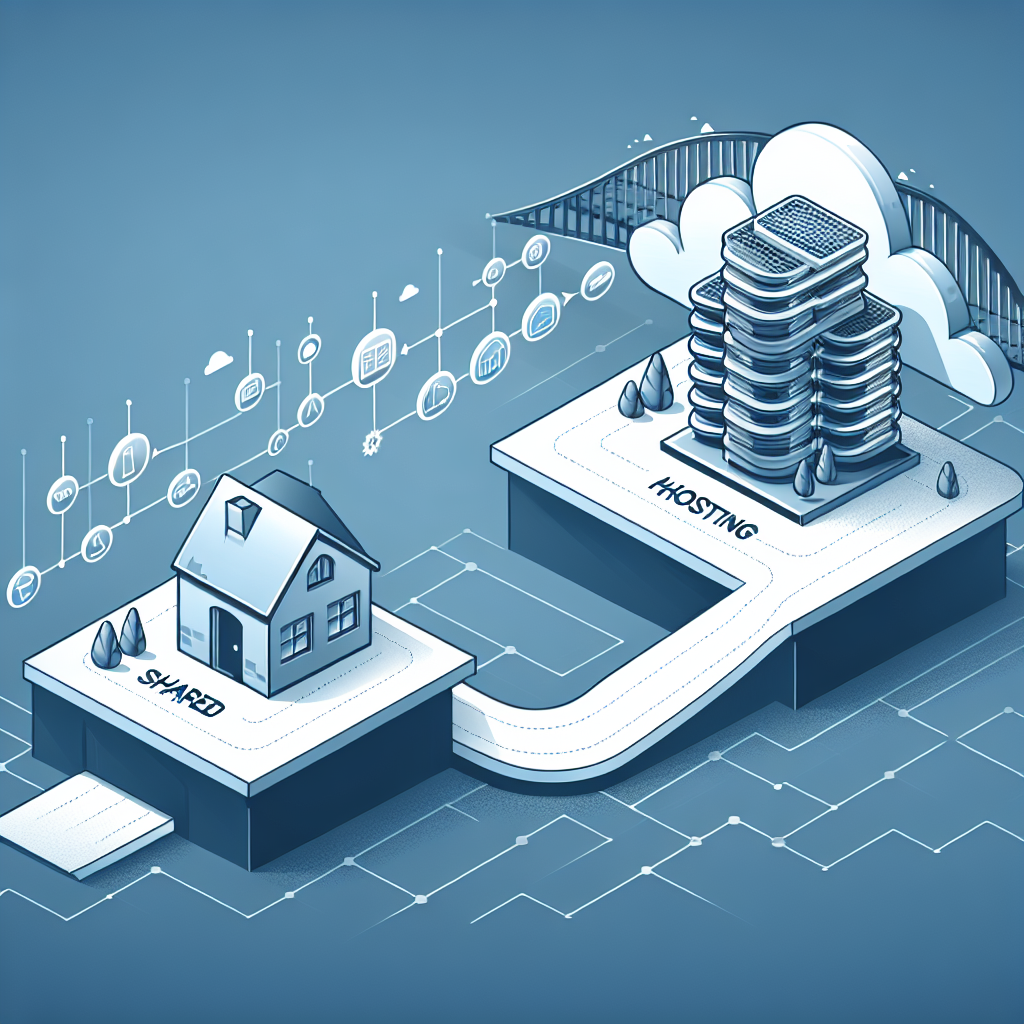Understanding Shared Hosting
Shared hosting is often the first choice for many individuals and small businesses looking to establish an online presence. It is an economical option where multiple websites are hosted on a single server. This means that all the sites share the server’s resources, such as RAM, CPU, and disk space.
Pros and Cons of Shared Hosting
| Pros | Cons |
|---|---|
| Cost-effective | Limited resources |
| Easy to manage | Slower performance |
| Basic control panel access | Less security |
When Should You Consider Upgrading?
1. Increased Website Traffic
If your website’s traffic is growing consistently, it’s a clear sign that you need more resources than shared hosting can provide. Shared hosting can handle small to medium traffic, but if you have daily visits running into the thousands, it’s time to consider an upgrade.
2. Slow Loading Times
Website speed is crucial for user experience and SEO. If you notice that your site takes longer to load, it might be because you are hitting the resource limits of your shared hosting plan. Advanced hosting solutions like VPS or dedicated hosting can offer better performance and faster loading times.
3. Frequent Downtime
Downtime can be detrimental to your business. If your website is frequently down, it’s a strong indicator that the shared server can’t handle your traffic or resource demands. Moving to a more advanced solution can provide better uptime and reliability.
4. Enhanced Security Needs
With shared hosting, security protocols are not as robust, and your site can be vulnerable to attacks. If you handle sensitive data or want to ensure maximum security for your visitors, upgrading to VPS or dedicated hosting offers enhanced security measures.
5. Scalability Issues
As your business grows, your hosting needs will also scale. Shared hosting does not offer the flexibility required for rapid business growth. Advanced hosting solutions provide the ability to scale resources up or down based on your needs.
Advanced Hosting Solutions
Virtual Private Server (VPS)
A VPS provides a dedicated portion of a server’s resources to your site, offering better performance, security, and scalability. It acts like a dedicated server but at a lower cost.
Dedicated Hosting
Dedicated hosting involves renting an entire server for your website. This offers maximum performance, security, and customization options but comes at a higher cost.
Cloud Hosting
Cloud hosting uses a network of servers to host your site, offering excellent scalability and reliability. It’s ideal for businesses that experience varying traffic levels.
How to Make the Transition
1. Assess Your Current Needs
Identify the specific reasons you need to upgrade, such as increased traffic or enhanced security. This will help you choose the right advanced hosting solution.
2. Compare Hosting Providers
Research different hosting providers and compare their plans based on your requirements. Consider factors like cost, customer support, and additional features.
3. Backup Your Website
Before making any changes, ensure you have a complete backup of your website. This will help prevent data loss during the transition.
4. Plan Your Migration
Migrating your website can be complex. Plan the migration to minimize downtime and ensure everything is set up correctly on the new server before making the switch.
5. Test Everything
After migration, test your website to ensure everything is functioning correctly. Check for broken links, missing files, and other issues that could affect user experience.
Conclusion
Moving from shared hosting to a more advanced solution is a critical step for growing your online presence. By recognizing the signs and understanding the benefits of advanced hosting, you can make an informed decision that ensures your website performs optimally and remains secure.

